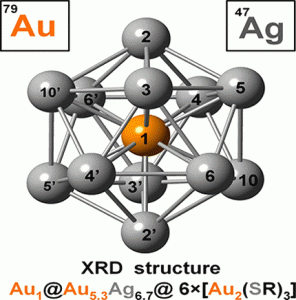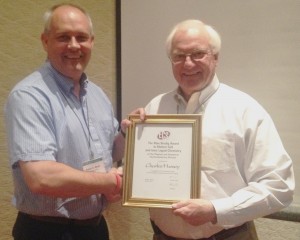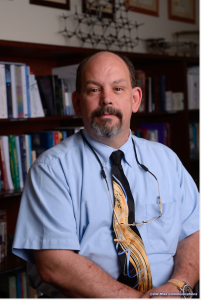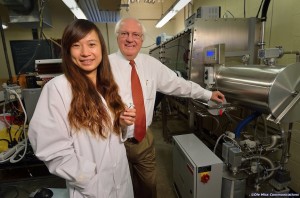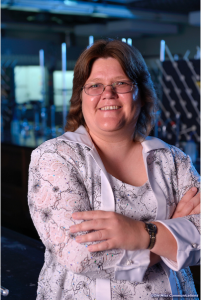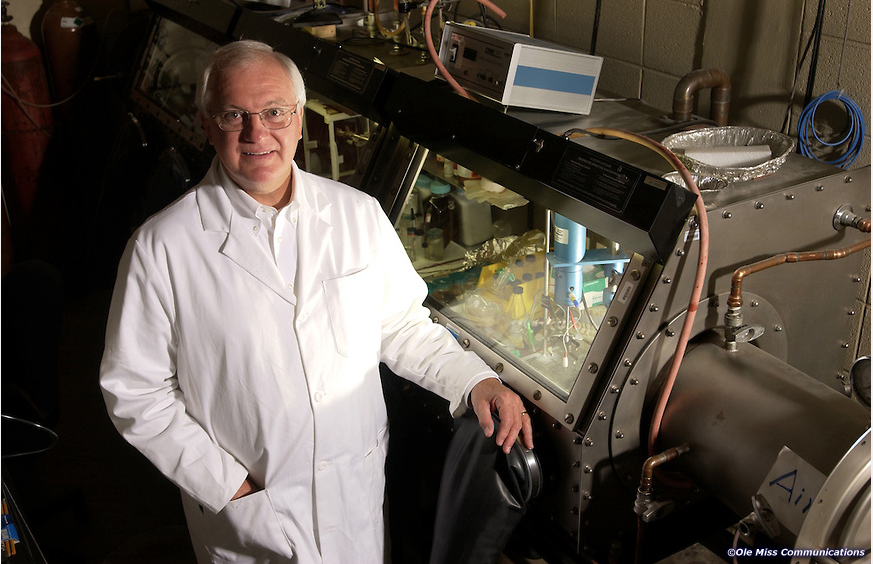
Logan Wilson
In the final year of high school, students work hard to achieve 4.0 GPAs, high test scores and maintain exemplary leadership and service track records in the hopes colleges will stuff their mailboxes with scholarship offers. Likewise, universities are looking to keep their scholarship packages competitive to assure they can recruit high-potential students, especially from within the home state. The key for both are discerning philanthropists who invest their dollars in education.
While UM’s high profile Barksdale Honors College enticed Logan Wilson to choose UM, it was the Everett-Williams Memorial Scholarship that enabled him to achieve his dream of attending college without accumulating today’s all too common student loan debt, which averages $28,000 for 2013 U.S. college graduates.
Thanks to generous donors like the late Mr. and Mrs. Thomas Everett of Meridian, Miss., the biochemistry major is attending his top choice university, the University of Mississippi.
The Everett-Williams Memorial Scholarship
In 2008, UM School of Law alumnus and 1848 Society member William H. McMullen of Charlotte, N.C. coordinated the transfer of the Everett-Williams Memorial Scholarship fund to the University of Mississippi Foundation.
The scholarship fund was initiated in the 1980s with an initial gift of $90,000 from McMullen’s uncle, Thomas Everett, on the condition that the endowment had to reach $1 million before any distribution began. Slowed but undeterred by the economic recession, the operations committee of the Everett-Williams Memorial Scholarship announced its first awards almost three decades after Everett’s first contribution, creating two four-year scholarships that total $13,000 annually: one for the Sally McDonnell-Barksdale Honors College (SMBHC), the other for Ole Miss First (OMF), a scholarship program that rewards scholastic achievement and leadership.
“Uncle Tom was a product of the depression era,” said McMullen. “His primary interest was the preservation of the corpus of money. He followed the stock market and was dedicated to being a good financial steward. He was also a steward of our family, always caring for others in times of illness or hardship.”
One of only two deserving recipients chosen in 2012 incoming SMBHC freshmen Logan Wilson, who has since met McMullen and his nephew, Phillip Allen and his wife, Toni, both UM alumni. Wilson enjoyed meeting McMullen and the Allens, learning about the family that helped provide this opportunity.
“It was an honor to meet them,” said Wilson. “I was glad to have the opportunity to shake their hands, hear the history of their family and how they came to dedicate this scholarship which has helped me and will continue to help others.” McMullen was eager to help his uncle navigate leaving this legacy, as McMullen also came to UM to focus on studies, not to worry about how to pay his tuition. “I was lucky to be able to complete law school in 1969 by just taking out a few manageable loans and working on the law journal for a small stipend. Back in those days the cost of law school was not what it is now. For today’s students, to borrow to go to school can be in the six-digit figures.”
Logan Wilson: A Force from Hattiesburg Carves his Niche at UM
Wilson, the recipient of the Everett-Williams Memorial SMBHC Scholarship, is proud to tell you that he is the product of North Forrest High School and a single-parent household. His mother instilled the importance of education in him from a very early age. As a teacher, she knew her son had potential, something she and his grandmother frequently reminded him, encouraging him to work hard and challenge himself. Throughout high school, Logan focused on academics and sports, excelling in both.
“I actually signed a junior college football scholarship, but my football coach pulled me aside and said, ‘Logan, you’re way too smart for that. With a mind like yours, you need to do something that uses your knowledge – football will always be there,'” said Wilson. “Plus, my grandmother taught me to listen to myself first and foremost, and not feel pressured to do what others want of me. Those two things and the influence of a lot of others helped me choose this path, which I feel really confident about.”
Wilson graduated second in his high school class in 2012 and was chosen for the NFHS’s Hall of Fame. He was class president all four years and president of the Student Council. He won awards in English, anatomy and physiology, and trigonometry/pre-calculus. Chosen as a Mississippi Rural Medical Scholar, he participated in a summer program where he took biology and pre-calculus at Mississippi State University while also shadowing doctors and learning the ropes of applying to medical school and choosing a specialty. The experience solidified Wilson’s dream to practice medicine, and he looked forward to starting down that path as an undergraduate.
“I didn’t get as many scholarship offers as I thought I might given what people had told me to expect with my credentials and grades,” said Wilson. “And the offers I did get weren’t schools I was really excited about. After being accepted to the Honors College, Ole Miss was easily my first choice – but I needed more financial assistance to make it happen. I was actually set to attend a different school because of their scholarship package, even though I had visited and didn’t feel it was the right fit for me. When I got the call offering the Everett-Williams scholarship here at UM, it was like a light came on – I knew the right things were finally taking shape.”
Today, Wilson is a sophomore biochemistry major who is making his own destiny here at UM. The summer between his freshman and sophomore years, he convinced Dr. Thomas Baylis at Premier Orthopedics and Sports in Hattiesburg to allow him to create a shadowing apprenticeship at the practice. “I shadowed him one day, and then I asked if we could make it a more formal thing. So they allowed me to come in three days a week. He gave me books to read, showed me how to read x-rays and gave me a full-scale experience to really see what the work was like. I loved it.”
When asked how his scholarship attributed to that experience, Wilson was quick to answer. “Having this scholarship allows me to strictly focus on my studies and my career path. I don’t have to worry about having to pay for college in a class-to-class fashion, semester to semester, and I know a lot of people that do. Not having that burden really does a lot for me and I don’t take it for granted.”
